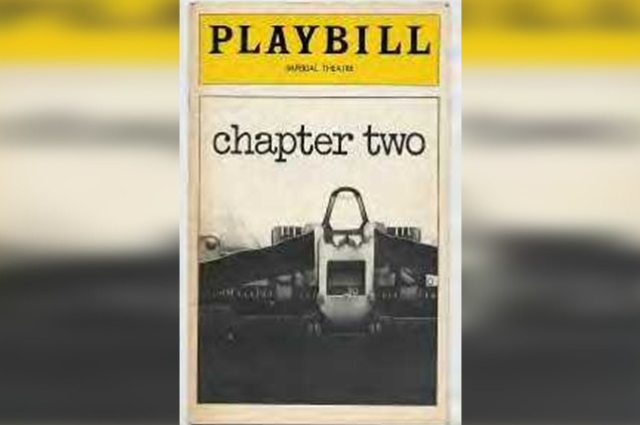This play revolves around the two main characters George Schneider and Jennifer Malone. This play portrays how a man is traumatized over his dead wife, strives to get away from depression and hopes for a new beginning in his life. George Schneider is a writer and a widower who is continually preoccupied with the thought and remembrance of his dead wife. In the first scene, the author reflects on how George Schneider is disoriented and disorganized in his way of living. Leo Schneider points out that George is uninterested in his life and he tries to introduce him to eligible women. George’s emotions are still raw from the death of his wife and he continues to be reminded of her. Because of being together with his wife for twelve years, he was mentally depressed and couldn’t get over Barbara. He was not able to replace the loss with someone else. In Act 1, scene 3 George says ‘I haven’t recovered from last week’s buried treasure…” And Leo’s description of George's state at Barbara’s death in Act 2 reflects that George bottles up his emotions and feelings where he shatters himself into pieces over the loss. Furthermore, he was deeply traumatized when he was under therapy because of fear and panic attacks. George tries to come out of his grief and suffering over the loss of his dead wife. Because the place, surroundings and everything reminds him of Barbara, he went to the places where they spent time together which may bring peace to his mind. But he is constantly reminded of Barbara everywhere. In the first scene, George talks about how he wanders the streets of London, in search of his wife. According to him, she’s not dead and she is waiting for him to live a life in secret. This represents that Barbara plays a large missing piece of happiness in the life of George.
To get away from the memories of his wife, he tries to date Jennie Malone. When the person is suffering from grief, usually they try to distract themselves to get rid of the past which continually ruins them both mentally and physically. Similarly, here George tries to get rid of his past recollection of his wife by meeting someone new. Despite rejecting the idea of dating he finds Jennie an attractive and interesting woman. However, he is unable to come out of the grief since he is fed up with the memories that he spent with his dead wife. In Act One, scene 8, When Jennie meets George at his house, during their conversation he says ‘I keep trying to push Barbara out of my mind…I can’t do it. I’ve tried, Jennie.” Throughout the scenes, he continuously recollects his memories of his wife through certain objects in the play. Even the surroundings and objects trigger a flash of memories and days that he spent with his wife and he continues to share those memories with Jennie and his brother, Leo. When he first meets up with Jennie in her house, he says that he spent his honeymoon with his wife in London during their conversation about the naming of his books. This represents how George couldn’t come to terms with the reality that she is no longer a part of his life. But he finds a small hope in his life after the phone call, regular meetings and conversations with Jennie. He says “I know I will never stop loving Barbara ....but I feel so good about you.” He forces himself into a fast marriage to get rid of the thoughts of Barbara instead of taking up the relationship slowly. At the beginning of their marriage, George and Jennie were very happy, which revived his life and gave him a sense of hope for the future and a new beginning of his life. But, during their honeymoon trip, some tourists who recognized him extended their condolences about George's deceased wife. Then he immediately sinks into a depression that continues through their return to New York. At his home, Jennie attempts to cheer him up but George can’t get over his first wife.
Despite being married to Jennie, George continues to grieve over his first wife. In Act 2, scene 5 George himself says, “You can’t get to the present without going through the past.” Being with Jennie makes him feel comfortable, but he can’t come to terms with the reality that there is a chance for a new beginning in his life. After George and Jennie are separated over a fight, George comes to his senses just in time, realizing how much he loves Jennie and how he doesn’t want to lose her. So, Jennie plays a major role in the life of George where she represents the hope and revival of life because, throughout the novel, Jennie wants to build a relationship with him and cheers him over time even though she loses her temper on a particular incident. In Act 2, scene 7 Jennie says “I could rearrange the furniture” which symbolizes how Jennie wants to rearrange the life of George by bringing hope and revival. At the beginning of Act 1, George isn’t able to write a new story but at the end of Act 2, George can finish the last chapters of his new book. This represents how the chapter ends with a new chapter. His past life with his first wife signifies the first chapter of his life which is filled with happiness, past traumas, grief, loss and misery. His new life with Jennie signifies the second chapter of his life which is filled with joy, hope and revival for new beginnings.

